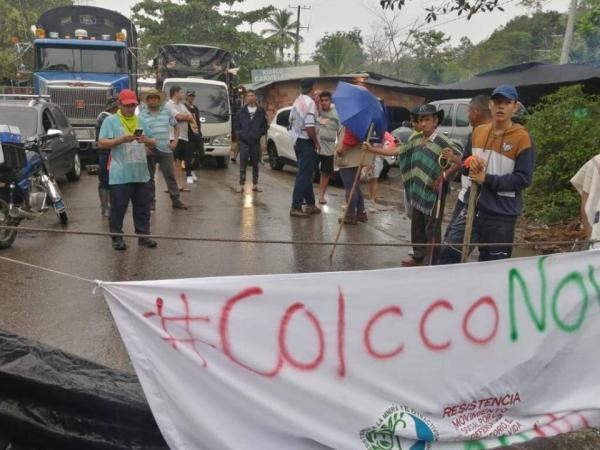This year the strikes have not stopped. The disagreements, requests and claims of Colombians, they have moved to the main highways of the country, which little by little have become the epicenter of the citizen struggle.
(Coffee exports are at risk due to roadblocks).
Although those who are part of these blockades seek to be heard, there are side effects that are born as a result of these strikes, such as the rise in prices of merchandise and food.
The reason for this thesis is based on the price of freight, an item that weighs a significant part in the final value of these products.
According to the Colombian Federation of Cargo Transporters Colfecar, this year there have been 81 blockades (only so far in January), that is, basically 2.6 events of this kind have been presented per day. In total, 1,555 hours have been blocked on the country’s main roads, of which 14 are the average duration of the same.
In the department where these eventualities have occurred the most is Santander, an area that takes the crown with 19 blockades and (455 hours of unemployment). Followed by this, is located Guajira, with 18 blockades and 485 hours of unemployment.
(Unemployment would have altered inflation in Colombia compared to other countries).
Less than 11 days ago, the blockade with the longest duration was presented, on January 23, where the greatest number of these eventualities occurred simultaneously.
In this regard, the union, like others in the sector, have asked the Government to define effective protocols for the management of community blockades on the country’s roads and apply the law when these demonstrations do not have the corresponding authorization. “because this situation is generating serious effects on all sectors of the national economy”said Nidia Hernández, union leader.
The executive president of Colfecar also added that the trips that a cargo vehicle made in a couple of days are now made in more than a week, which automatically generates an increase in freight.
“This undoubtedly produces dire economic and social consequences for the country. Currently, the blockades by dissatisfied communities on national roads are the main bottleneck for cargo transportation in Colombia. It is with concern that we see that the blockades are becoming more frequent and lasting longer, affecting the productivity of cargo vehicles, food security, and the connectivity of Colombians.” remarked.
This premise is supported by the professor at the Universidad del Rosario, Alejandro Useche, who also warns that these situations affect the most vulnerable families above all, since forecasts drop, impacting the line of food and medicines.
(The egg, chicken and coffee, the most affected by road blocks).
“Most of these families allocate a large part of their income to food, and in the midst of a situation characterized by the highest inflation in several decades, these blockades are leading to an increase in the price of food (… ) this hits the pockets of the most vulnerable households very hard”, recognizes the specialist.
With all these cards on the table, today the Ministries of Defense, Interior and Transport will meet with the unions to discuss alternatives to combat these effects on the roads, which is the responsibility of all Colombians, since 98% of the cargo mobilized, it is done through the country’s highways, which contributes substantially to all sectors of the Colombian economy.
Blockades raise freight prices
Fedetranscarga, another union of freight forwarders, says that these strikes intensify freight costs, thus increasing the value of the final prices of the productswhich in turn contributes to inflation, further impacting the pocket of Colombians.
“In addition, these blockades have increased the insurance for truckers and for transported loads, because the trucks that are being victims of these scenarios are being stolen, which increases the price of insurance,” said Arnulfo Cuervo, vice president of the union.
PAULA GALEANO BALAGUERA








